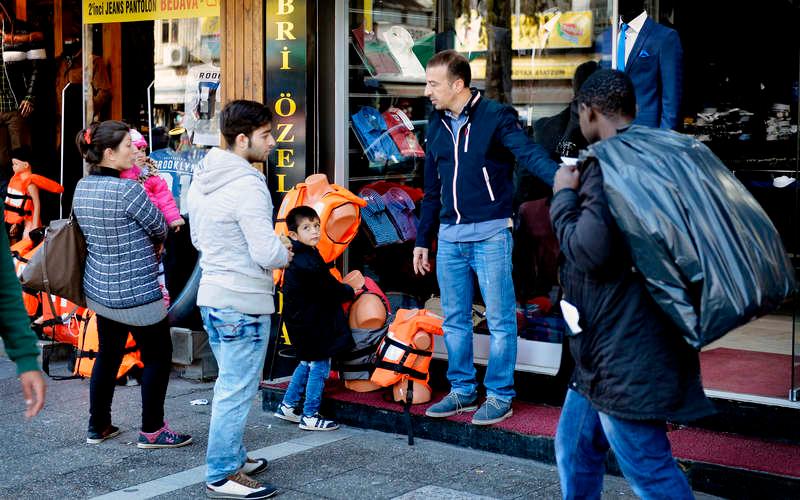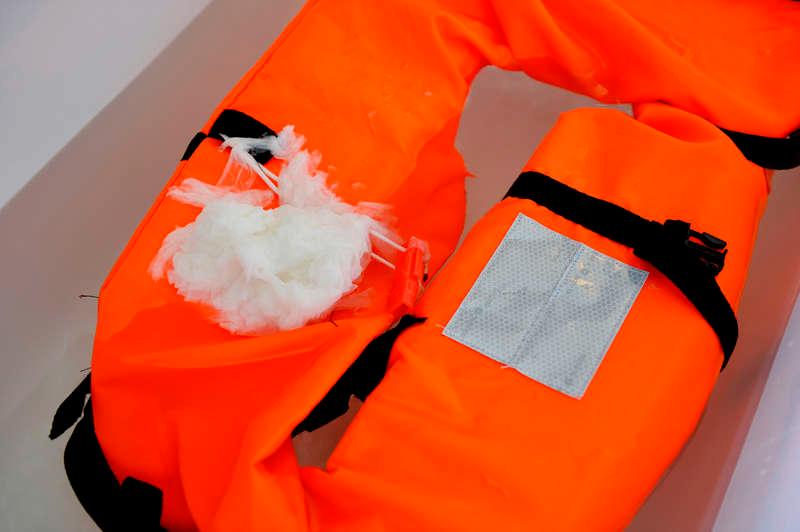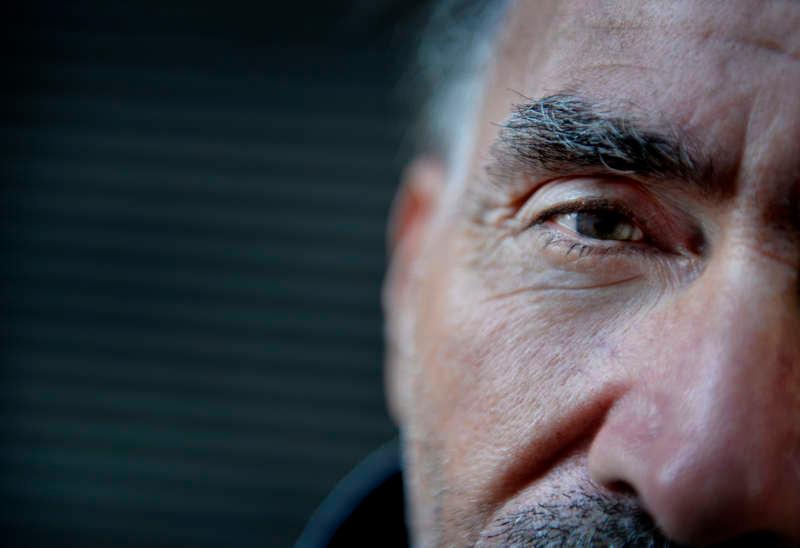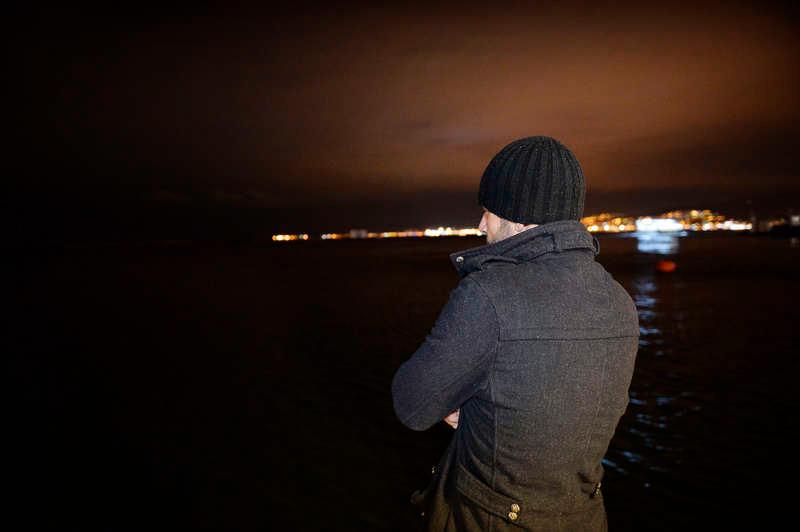All that’s left is a life jacket made of paper
Uppdaterad 2015-10-27 | Publicerad 2015-10-26
The deadly devices are sold to fleeing refugees with children
This story starts at the bottom of a bathtub.
There is an orange piece of fabric, just sold as a life jacket.
”It is original, very safe,” the salesman said.
As the water in the bathtub rises, the life jacket stays on the bottom, drowned by its own weight.
Behind us in the shop, families with children stood in line to buy the same kind of life jackets before crossing the sea in a life-threatening journey. Tonight, the rubber boats are heading towards Europe again.
Muhammed Hassan is terrified.
He knows that the journey from Izmir to the island Samos could be the last thing he does in life. He knows a family whose daughter drowned on this exact route just a month ago.
On the other hand, Muhammed Hassan has been afraid almost every day for the past four years. Living in Aleppo, in the epicentre of the war, his and his family’s lives have been in a constant danger. Now only one last challenge remains.
”I hope that this is the last danger we will be forced to expose ourselves to,” he says.
Muhammed Hassan compares the journey across the Mediterranean Sea with a bomb attack.
”If you are in the right place, you survive. If you’re in the wrong place…” he says, feeling no need to explain how that sentence would end.
He is travelling with his wife and four children. He has paid 5,400 US dollars to a trafficker to bring the family to the Greek islands with one of the rubber boats.
Now he has received the call, it is time to go.
”It’s said to be at 3am tonight, but I still don’t know from where,” he says.
The trafficker will pick up the family and bring them to the boat. Because of the winds, the departure locations vary from night to night.
”He explained that it was important that we didn’t get too many waves from the side into the boat,” Muhammed says.
“I’m as prepared as I can be, but I have never been on a boat in my life and I don’t know if I know how to swim. There has never been that many opportunities for it. None of my children can swim either.”
The wind is coming from the northwest now and the heavy clouds that have been hovering above the Turkish coast during the last few have swept away.
Now a few days of sunshine lie ahead and the refugee traffickers are keen to launch the boats in the water. The business must not decline. Normally, the stream of refugees wanting to get from Turkey to Greece start to decrease in October, but this year it is almost the opposite. Since the EU decided to give Turkey huge financial support to prevent the stream of refugees to move further, the stream has instead increased.
”It’s important to travel now, before it is too late”, 26-year-old Waseem from Damascus says.
He has paid 900 dollars for his ticket. That is a bargain.
As the autumn storms have swept in, the traffickers have lowered the price so that the business will not decline. The formula is: the more dangerous the trip, the cheaper the price.
When we go our separate ways we agree that Waseem will call via Viber when he reaches Greece. Later he writes in a message:
”I hope we will meet. If God wants, I will be alive tomorrow. /W.”
The text arrives at the same time as we make the test of the life jacket we bought.
It turned out to be filled with paper.
Erik Wiman




